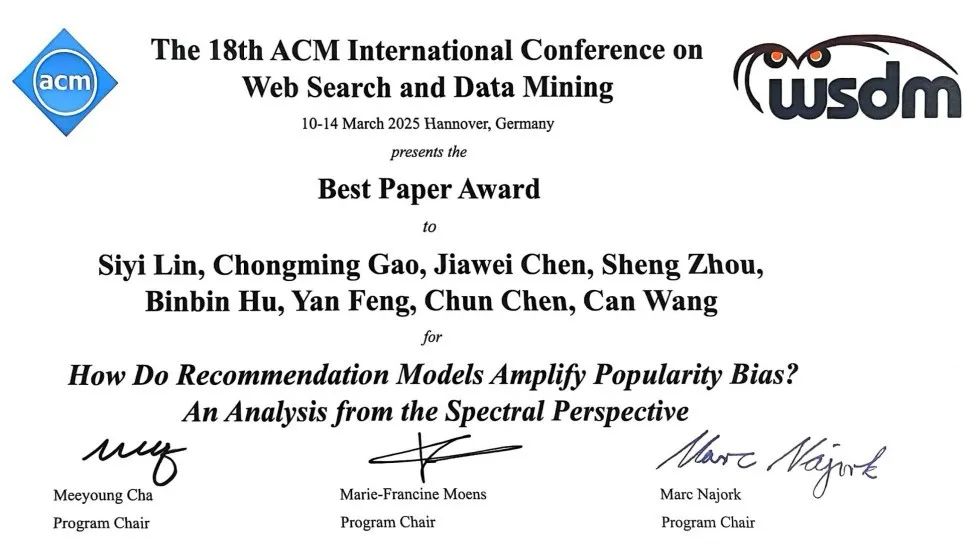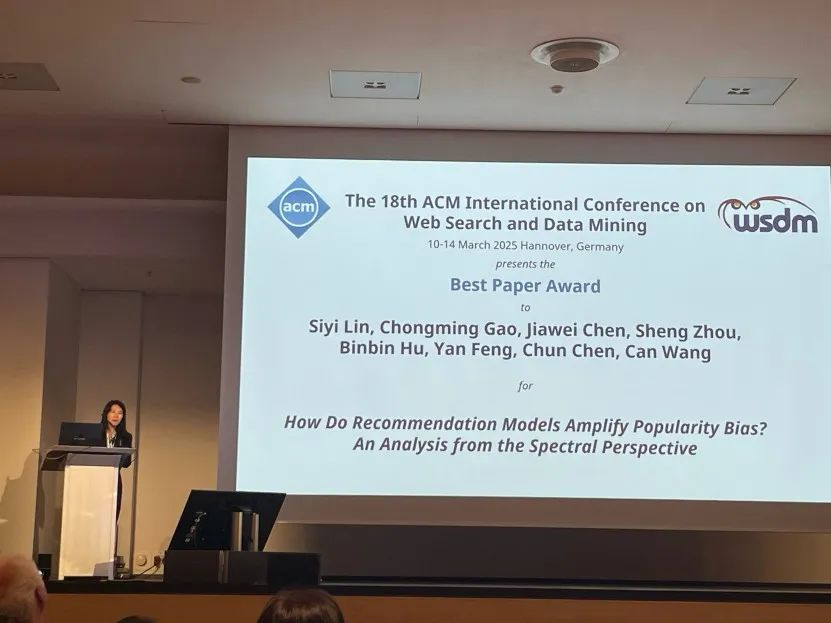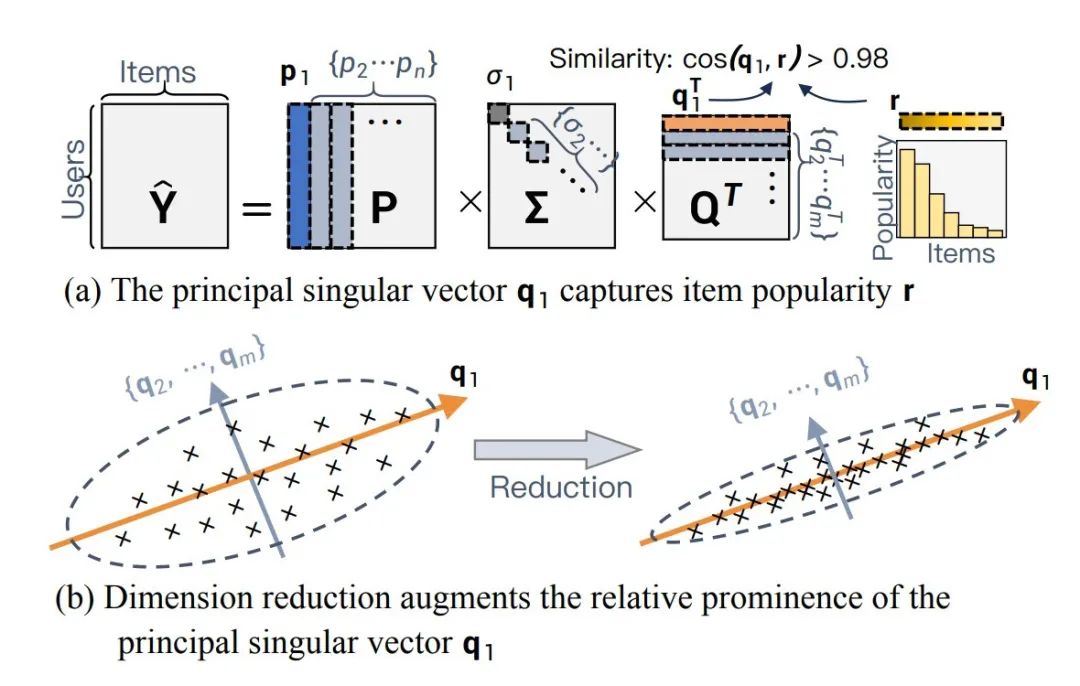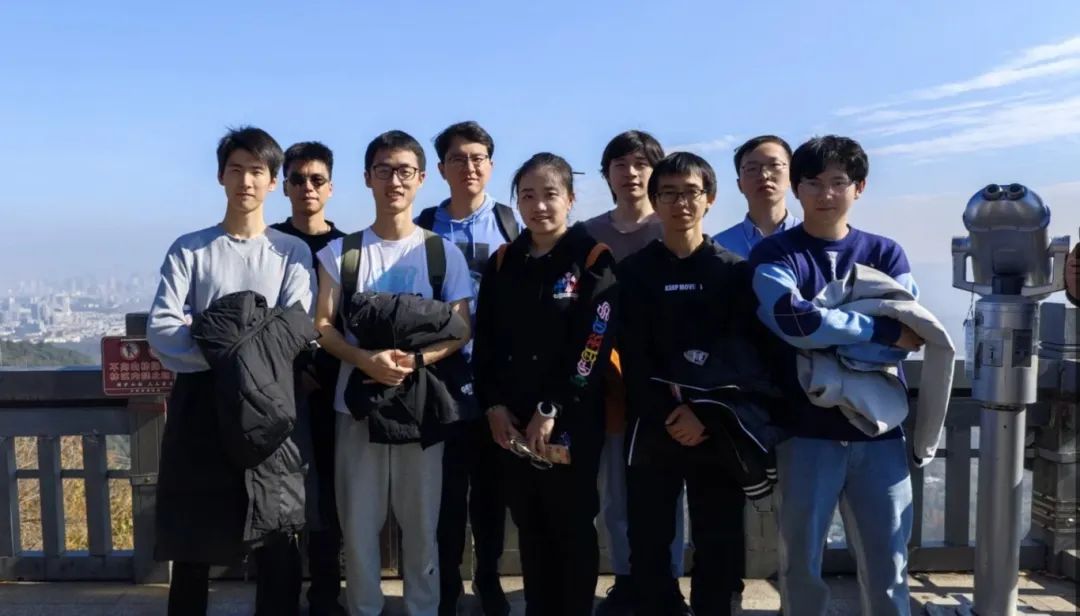
On April 8, 2025, the ZLST Lab from the College of Computer Science and Technology at Zhejiang University was awarded the Best Paper Award at the 18th International Conference on Web Search and Data Mining (WSDM 2025), held in Hanover, Germany. Their paper, titled “How Do Recommendation Models Amplify Popularity Bias? An Analysis from the Spectral Perspective”, stood out among the 106 accepted papers and received the conference’s only Best Paper Award—WSDM’s highest honor. This marks the first time since Tsinghua University’s win in 2022 that a Chinese university has claimed this prestigious award.

the award ceremony and certificate

Lead author LIN siyi presented the paper during the conference
About WSDM

WSDM (Web Search and Data Mining) is one of the most prestigious academic conferences in the fields of information retrieval, data mining, databases, and web technologies. It is co-sponsored by four ACM Special Interest Groups: SIGIR, SIGKDD, SIGMOD, and SIGWEB. Each year, WSDM brings together leading researchers from academia and industry around the world. It is rated as a Class B conference by the China Computer Federation (CCF) and a Class A conference by Tsinghua University.
WSDM 2025 had a highly selective acceptance rate of 17.3%, with only one paper being selected for the Best Paper Award. Past winners include teams from Cornell University, Carnegie Mellon University, Tsinghua University, Oxford University, as well as major tech companies like Microsoft and Google.
About the Paper
Popularity bias in recommendation systems refers to the tendency of models to favor popular items, especially when trained on long-tail data. This can lead to echo chambers and the “Matthew Effect,” where the popular become more popular, and niche content is ignored. This paper is the first to provide a theoretical explanation for the roots of popularity bias in recommender systems, introducing a novel spectral perspective to analyze and address the issue.
Key contributions include:
A theoretical and empirical demonstration that popularity information is encoded in the dominant spectral components of a model’s prediction matrix.

An explanation of how spectral amplification, caused by dimensional decay in models, exacerbates popularity bias during predictions
Based on these insights, the authors propose a simple yet effective spectral norm regularization method to mitigate bias. The method shows superior performance across seven real-world datasets and three evaluation settings, with strong potential applications in recommendation, graph mining, and content retrieval tasks involving long-tail distributions.
🔗 Read the paper on arXiv:https://arxiv.org/pdf/2404.12008
🔗 Detailed introduction in Chinese:https://mp.weixin.qq.com/s/D9xS_1c3ClMtqO2x62O5yQ
About ZLST Lab
Led by Academician Chen Chun, the ZLST Lab at Zhejiang University focuses on intelligent big data research. In recent years, the team has made significant contributions to cutting-edge areas such as large language models, diffusion models, trustworthy recommendation systems, and model compression. The lab has received five provincial and ministerial science and technology awards, along with five Best Paper or related awards at top international conferences.
ZLST Lab welcomes talented researchers and students to join the team and contribute to advancing artificial intelligence in the era of large-scale models.
🛜Visit the lab homepage:https://zlstwebsite.github.io/Zlst/home/







